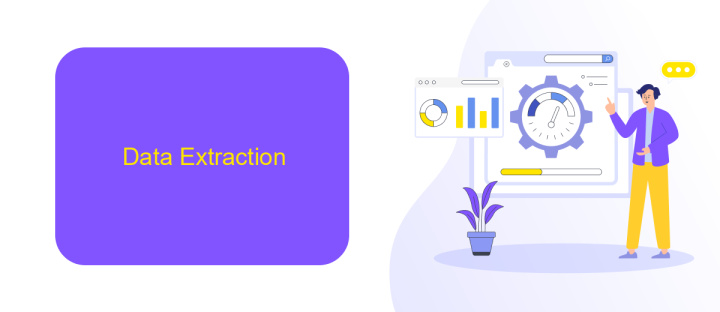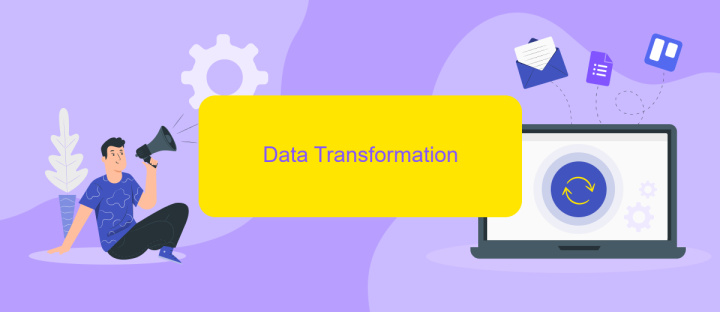ETL of Data
ETL (Extract, Transform, Load) is a crucial process in data management and analytics. It involves extracting data from various sources, transforming it into a suitable format, and loading it into a data warehouse or database. This process ensures that data is clean, consistent, and ready for analysis, enabling businesses to make informed decisions based on accurate information.
Introduction
In today's data-driven world, the process of extracting, transforming, and loading (ETL) data is crucial for businesses to make informed decisions. ETL tools enable organizations to gather data from various sources, transform it into a usable format, and load it into a data warehouse or other storage solutions. This process ensures that data is accurate, consistent, and ready for analysis.
- Extraction: Collecting raw data from multiple sources.
- Transformation: Converting data into a suitable format.
- Loading: Storing the transformed data into a target system.
One of the key players in simplifying ETL processes is ApiX-Drive. This service provides seamless integration and automation of data workflows, allowing businesses to connect various applications without the need for complex coding. By using ApiX-Drive, organizations can streamline their data management tasks, ensuring that their data is always up-to-date and readily accessible for analysis. As a result, businesses can focus more on deriving insights and making strategic decisions rather than managing data pipelines.
Data Extraction

Data extraction is the initial phase in the ETL process, where raw data is gathered from various sources. These sources can include databases, APIs, flat files, and web services. The goal is to retrieve data in its most granular form without altering its structure. This step is crucial as it sets the foundation for subsequent transformation and loading processes. Ensuring the accuracy and completeness of the extracted data is paramount to the success of the entire ETL workflow.
Modern data extraction tools and services, such as ApiX-Drive, simplify this process by providing seamless integrations with a wide range of data sources. ApiX-Drive allows users to automate data extraction tasks, reducing manual effort and minimizing the risk of errors. By leveraging such tools, organizations can efficiently gather data from disparate systems, ensuring that they have a comprehensive and accurate dataset ready for transformation and analysis. This automation not only saves time but also enhances the reliability of the data extraction process.
Data Transformation

Data transformation is a critical phase in the ETL process, where raw data is converted into a format suitable for analysis. This step involves cleaning, structuring, and enriching data to ensure it meets the requirements of the target system. Effective transformation ensures data consistency, integrity, and usability.
- Data Cleaning: Removing duplicates, correcting errors, and handling missing values.
- Data Structuring: Organizing data into a defined schema or model that aligns with business needs.
- Data Enrichment: Enhancing data by integrating additional information from external sources.
Utilizing tools like ApiX-Drive can significantly streamline the data transformation process. ApiX-Drive offers seamless integration capabilities, allowing businesses to automate data flows between various applications and services. By leveraging such platforms, organizations can ensure that their data transformation processes are efficient, accurate, and scalable, ultimately leading to more informed decision-making and better business outcomes.
Data Loading

Data loading is the final stage of the ETL process, where transformed data is moved into a target system, such as a data warehouse or database. This step is crucial as it ensures that the processed data is readily available for analysis and reporting purposes. Efficient data loading can significantly impact the performance and reliability of the entire data pipeline.
There are different strategies for loading data, including full load, incremental load, and upsert operations. The choice of strategy depends on the specific requirements and constraints of the target system and the nature of the data being processed. Tools and services, such as ApiX-Drive, can streamline this process by automating integrations and data transfers.
- Full Load: Transfers all data from the source to the target system.
- Incremental Load: Only transfers new or updated data since the last load.
- Upsert: Combines insert and update operations to efficiently manage data changes.
Using automation tools like ApiX-Drive can simplify the data loading process by providing pre-built connectors and workflows, reducing the need for manual intervention. This ensures that data is consistently loaded into the target system, maintaining data integrity and availability for business intelligence activities.
- Automate the work of an online store or landing
- Empower through integration
- Don't spend money on programmers and integrators
- Save time by automating routine tasks
ETL Challenges and Solutions
One of the primary challenges in ETL processes is data inconsistency, which can arise from disparate data sources. Inconsistent data formats, missing values, and duplicated records can significantly hinder data quality and reliability. To address these issues, it's crucial to implement robust data validation and cleansing mechanisms. Tools like ApiX-Drive can facilitate seamless integration between various data sources, ensuring that data is consistently formatted and free of errors before it is loaded into the target system.
Another significant challenge is the scalability of ETL processes. As data volumes grow, traditional ETL pipelines may struggle to handle the increased load, leading to performance bottlenecks. Leveraging cloud-based solutions and distributed computing frameworks can help overcome these limitations. ApiX-Drive, for instance, offers scalable integration services that can adapt to growing data needs, ensuring efficient data processing and transformation even as the data landscape evolves. By addressing these challenges, organizations can ensure their ETL processes remain robust and efficient.
FAQ
What is ETL in data processing?
Why is ETL important?
What are the main challenges of ETL?
How can ETL processes be automated?
What are the best practices for ETL implementation?
Apix-Drive is a simple and efficient system connector that will help you automate routine tasks and optimize business processes. You can save time and money, direct these resources to more important purposes. Test ApiX-Drive and make sure that this tool will relieve your employees and after 5 minutes of settings your business will start working faster.


